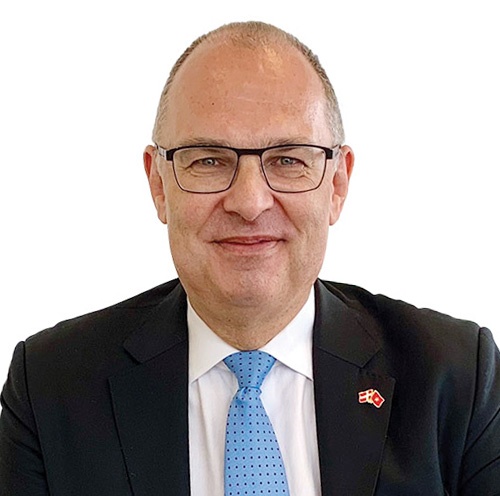Danish investors pinpointing rising potential of Vietnam’s green energy
 |
| Kim Højlund Christensen, Danish Ambassador to Vietnam |
With the return of tourism and trade activities, can you see any movement from business and investment promotion delegations that are going to visit Vietnam?
The Vietnamese government’s recent decision to lift entry restrictions and especially to resume the visa-exemption travel programme for countries, including Denmark, is great news and positively welcomed by the Danish business community. Many Danish companies are already planning their visits to Vietnam this month and early next month to meet with their local business partners in person.
At present, there are over 130 Danish companies represented in Vietnam. Therefore, there will be a large number of business visitors and delegations from headquarters in Denmark or other locations in the region coming here in the near future to visit their production facilities or to find new investment opportunities. Besides that, we also expect to have trade delegations visit our key sectors such as food, energy, and water later this year.
Which fields are Danish businesses interested in investing in here?
Vietnam is no doubt attracting the attention of Danish investors, not least thanks to the government’s strong commitment to reducing carbon emissions and actively responding to climate change. One of the most recent successful deals is LEGO Group’s $1 billion investment in a carbon-neutral production plant in the southern province of Binh Duong, which was announced last December.
Danish companies are interested in investing in sectors that support sustainability. For instance, the two big players in the offshore wind industry, Ørsted and Copenhagen Infrastructure Partners, both have a pipeline of billions of US dollars worth of investment in Vietnam. Once these projects are completed, they are expected to power millions of local households and at the same time help Vietnam avoid hundreds of million tonnes of emissions.
In addition, in light of recent developments in the world’s economy and Vietnam’s potential to become a more strategic player in the global market, there will be more Danish investors with top solutions and technology looking for opportunities to strengthen their value chains here. Besides traditional sectors like textiles, furniture, food, and agriculture, we have reasons to believe that companies in technology, medical devices, maritime and more will also consider Vietnam as a possible destination.
Vietnam has shifted its focus from quantity to quality when it comes to attracting foreign direct investment (FDI). Do you have suggestions for Vietnam to improve the investment climate?
Investments nowadays place great importance on environmental, social, and governance (ESG) criteria and the availability of local infrastructure and facilities which enable a green operation and emissions reduction. If Vietnam wants to attract high-quality FDI, which brings in more value-added production facilities and high–skilled jobs, you should pay attention to ESG, including the establishment of a legal framework that allows companies to document ESG-related data.
This data has a big impact on companies’ financial books as they decide, for example, the tax rates companies have to pay when they export their products to foreign markets.
With the rise of carbon-neutral commitments being made by countries and global corporations and in implementing their net-zero ambitions, foreign investors will look to the procurement of renewable power as a critical solution to reducing their carbon footprints.
However, there is a lack of access to renewable energy in Vietnam. There is also no regulatory framework regarding granting renewable energy certificates or carbon credits to manufacturers. This makes it difficult for foreign investors to recognise their emission reduction commitments. Attracting FDI, therefore, will depend increasingly on the availability of green energy supply.
What the stars mean:
★ Poor ★ ★ Promising ★★★ Good ★★★★ Very good ★★★★★ Exceptional
Related Contents
Latest News
More News
- Sumitomo sets eyes on industrial infrastructure in Can Tho (January 28, 2026 | 17:06)
- Kim Long Motor and BYD Battery start electric vehicle battery plant in Hue (January 28, 2026 | 09:56)
- SHIFT project launched to steer capital towards green growth (January 28, 2026 | 09:52)
- Haiphong steps up supporting industry ecosystem efforts (January 27, 2026 | 16:09)
- Century Synthetic Fibre inaugurates Unitex factory in Tay Ninh (January 26, 2026 | 16:03)
- SLP supporting Vietnam in closing FDI-related gaps (January 26, 2026 | 10:06)
- UK–Vietnam partnership advances BIM centre for railway development (January 24, 2026 | 11:20)
- Nghe An issues criteria for Quynh Lap LNG plant selection (January 22, 2026 | 20:20)
- Vietnam as a manufacturing hub: why on-the-ground inspection matters (January 22, 2026 | 11:47)
- 14th National Party Congress: Building Hue into distinctive international cultural, tourism hub (January 22, 2026 | 09:27)

 Tag:
Tag:



















 Mobile Version
Mobile Version